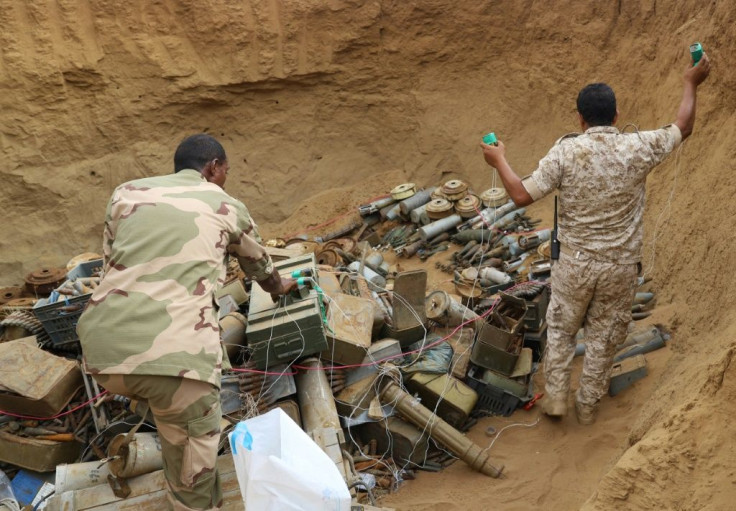US Imposes Sanctions On Two Yemen Huthi Commanders
The United States on Tuesday imposed sanctions on two commanders of Yemen's Huthi rebels, blaming them for civilian deaths and denouncing their ties with Iran as Washington seeks to halt the devastating war.
The Treasury Department said it would freeze any assets of the air force and naval commanders of the Huthis, who have defied international appeals by pursuing an offensive to seize the government's last northern stronghold.
With the rebels from the impoverished nation unlikely to have US bank accounts, the effects are largely symbolic but reinforce President Joe Biden's sharp criticism of Iran even as he opens the door to diplomacy with Tehran and distances his administration from Saudi Arabia, which has been waging a punishing campaign to dislodge the Huthis.
"Iran's involvement in Yemen fans the flames of the conflict, threatening greater escalation, miscalculation and regional instability," Secretary of State Antony Blinken said in a statement.
"Ansar Allah uses Iranian weapons, intelligence, training and support to conduct attacks threatening civilian targets and infrastructure in Yemen and Saudi Arabia," he said, using the Huthis' official name.
Blinken condemned the rebels' continued offensive and said the United States would provide the Saudis "the tools they need to defend themselves."
The promise comes despite Biden's pledge to end US support for "offensive" operations in Yemen as well as his criticism of Crown Prince Mohammed bin Salman after a declassified US report showed that he approved the grisly killing of journalist Jamal Khashoggi.

The Treasury Department said that the sanctioned commanders had trained in Iran and acquired weapons from the clerical state, which has religious affinities with the Huthis and a shared hostility toward Saudi Arabia.
The Huthi naval commander, Mansur al-Saadi, masterminded deadly attacks against international shipping in the Red Sea and put fishermen and other civilians at risk with naval mines, the Treasury Department said.
The air force commander, Ahmad Ali Ahsan al-Hamzi, has carried out targeted drone strikes, it said.
In one of its first acts, the Biden administration had rescinded a broader designation of the Huthis as a terrorist organization.
Aid groups said that the label put their work at risk as they had no choice but to deal with the Huthis, who effectively are Yemen's governing authority in much of the country including the capital Sanaa.
Former president Donald Trump's administration, which fiercely opposed Iran and was closely aligned with Saudi Arabia, had branded the Huthis as terrorists in its final days in office.
The United Nations has called Yemen the world's worst humanitarian crisis and voiced disappointment after a pledging conference Monday raised $1.7 billion in aid, far below the appeal for $3.85 billion.
© Copyright AFP 2024. All rights reserved.





















